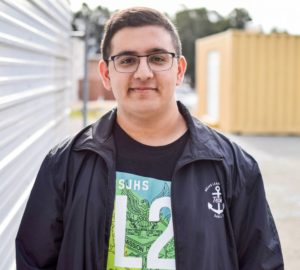Sanil Chawla was a sophmore in high school when he started to seriously pursue his dream of launching a web development startup. It didn’t take long though, before he realized that, as he puts it, “there’s just so much red tape for young founders.” He had to get a parental signature on all of the many forms, and was unable to open a separate bank account for his business as a minor. On top of those barriers, he found out that startups in his state of California require about $1,000 in legal fines to initiate. In the midst of this struggle, he realized that young entrepreneurs are at a huge disadvantage, and began to contemplate if there could be a better way to help young people pursue their ideas to create great impact. That’s when Hack+ was born.
To solve the problem, Sanil did extensive research. In this process, he discovered the key: fiscal sponsorship. Fiscal sponsorship is “a common practice in which nonprofits extend their legal status and back-end support to small projects with a similar mission.” Part of his success came from his own strength and creativity with technology. He says he “developed software to automate all the paperwork and basically made a really scalable version of fiscal sponsorship.” As a result, his non-profit startup has now helped over 700 student founders to launch their own ventures to create positive impact based on their strengths. According to Hack+’s highly professional website, their influence is so far reaching that they impact over 60,000 people annually through this work.
Sanil’s story and work inspires me in multiple ways. For one, I commend him for having the selflessness to set aside his original dream to solve a problem to help and empower other young people he didn’t even know. Secondly, I admire his bravery in taking on such an ambitious task in somewhat uncharted territory, involving financial and legal issues, among complexities that I don’t even know exist. In response to this, I hope the next time I come across a situation that puts a group of people at a disadvantage, I will have the selflessness and bravery to stop what I am doing to make it better for others.


What an awesome story. I think one of my favorite parts of entrepreneurship is when someone innovates to open doors for other entrepreneurs to achieve their goals. Sanil could have easily dealt with the State of California’s bureaucracy and started his own business. However, he decided the system needed fixed and used his skills to fix the issue. I think this is a common theme in entrepreneurship stories. Someone sees a problem and instead of letting that problem hurt other they fix it for the betterment of themselves and others.
Sanil showed great problem-solving skills with his creation of Hack+. When faced with a personal problem, he could’ve just given up or wasted his time cutting through the red tape. However, he solved the problem and created a solution for thousands of others in the process. Due to his hard work and ingenuity, others can be given the opportunity to give a similar positive impact in another venture.